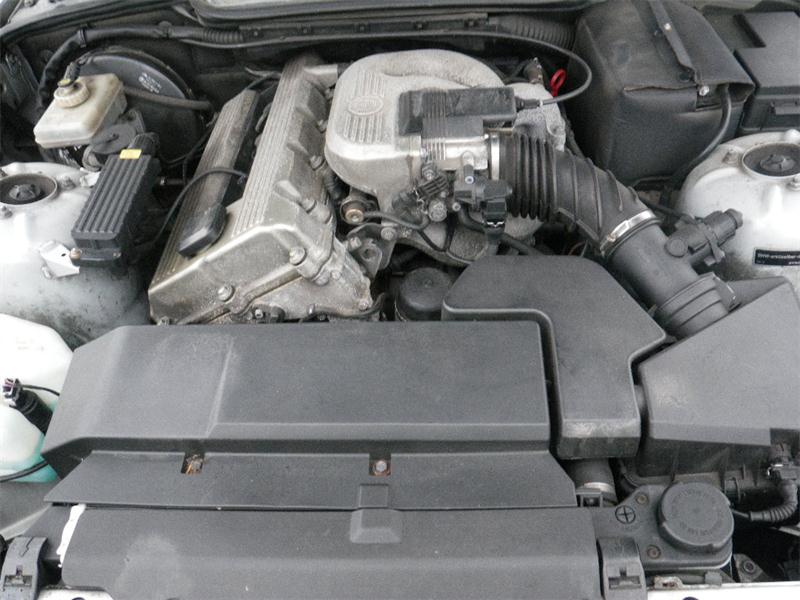BMW 318ti: Efficiency Specifications and Qualities Explained
BMW 318ti: Efficiency Specifications and Qualities Explained
Blog Article
Secret Functions to Try To Find When Purchasing an Engine for Automotive Applications
When considering the acquisition of an engine for automobile applications, several crucial attributes call for mindful assessment to make certain optimal efficiency and functionality. From power and performance capabilities to sustain adherence, effectiveness, and longevity to discharges requirements, each facet plays a vital duty in identifying the engine's suitability for certain automotive needs.
Power and Efficiency
When selecting an automotive engine, buyers focus on power and efficiency to guarantee optimal driving experience and performance. A well-performing engine not just provides power efficiently yet additionally runs smoothly throughout different speed arrays and driving problems.
Furthermore, factors such as engine variation, turbocharging, and crossbreed innovations play substantial roles in improving both power and efficiency levels. Eventually, picking an engine that offers a powerful combination of power and performance makes sure a efficient and gratifying driving experience.
Gas Performance
When examining automobile engine alternatives,Optimizing gas efficiency is an extremely important consideration for customers. The efficiency of an engine straight impacts operating prices and ecological footprint. One vital element affecting fuel efficiency is the engine's style and technology. Modern engines with functions like straight fuel injection, turbocharging, and variable shutoff timing can considerably boost fuel effectiveness by boosting combustion processes and minimizing energy loss. Furthermore, the general weight of the engine and car, along with the aerodynamics, play essential duties in identifying fuel intake.

Longevity and Dependability
Achieving durable performance and reputable operation is crucial for customers assessing the durability and dependability of automotive engines. When thinking about an engine for automotive applications, toughness refers to the engine's capability to hold up against wear, tension, and rough operating problems over a prolonged duration. Reliability, on the other hand, indicates that the engine can regularly execute its desired feature without unexpected malfunctions or failings.
Consumers ought to seek engines constructed with top notch products and precise engineering to make sure long life. Components such as crankshafts, pistons, and bearings need to be durable to deal with the engine's power outcome without early wear. In addition, engines equipped with advanced cooling systems, effective lubrication, and robust filtration systems often tend to show greater degrees of integrity.
Regular maintenance and adherence to producer recommendations are also critical elements in protecting an engine's longevity and integrity. By adhering to upkeep timetables, making use of suggested liquids, and Discover More Here resolving any kind of problems immediately, customers can make best use of the lifespan and efficiency of their auto engines. Inevitably, focusing on sturdiness and dependability in engine selection can lead to an extra enjoyable possession experience with fewer unforeseen interruptions.
Emissions Compliance
Making certain conformity with discharges regulations is a crucial aspect of reviewing vehicle engines for ecologically mindful consumers. With increasing problems regarding air quality and ecological impact, rigorous discharges standards have actually been established around the world to reduce unsafe contaminants released right into the ambience. When buying an engine for automobile applications, it is necessary to consider its discharges compliance to lessen the carbon impact and abide by lawful demands.
Modern engines are geared up with innovative exhaust control innovations such as catalytic converters, exhaust gas recirculation (EGR) systems, and discerning catalytic reduction (SCR) to lower damaging exhaust gases like nitrogen oxides (NOx), carbon monoxide gas (CARBON MONOXIDE), and hydrocarbons (HC) These systems play a critical duty in guaranteeing that the engine satisfies the defined discharges criteria and operates within acceptable restrictions.

Cost-effectiveness
When taking into consideration vehicle engine purchases, assessing cost-effectiveness is paramount for consumers looking for both efficiency and worth. Cost-effectiveness in engine procurement involves more than simply the preliminary purchase price. It includes the general costs associated with upkeep, gas intake, and prospective repairs over the engine's life-span. Going with an engine that supplies an equilibrium between in advance costs and long-lasting cost savings can lead to considerable advantages for the consumer.
One key element of cost-effectiveness is fuel performance. Engines that are created to make best use of gas economy can result in substantial cost savings over time, particularly for individuals who drive frequently or over fars away. Additionally, taking into consideration the accessibility and price of spare parts and servicing can add to the general cost-effectiveness of an engine. Making certain that repair and maintenance are practical and easily accessible can prevent unexpected economic problems down the line.

Verdict
In verdict, when buying an engine for vehicle applications, it is crucial to consider vital features such as power and efficiency, gas reliability, efficiency and durability, emissions compliance, and cost-effectiveness. These factors are vital in ensuring that the engine satisfies the demands of the car and operates properly in different driving problems - bmw 318ti. Making a notified choice based upon these requirements will eventually lead to a effective and successful vehicle engine acquisition
From power and efficiency abilities to sustain efficiency, toughness, and adherence to discharges requirements, each aspect plays a vital role in determining the engine's suitability for specific vehicle needs. Engines developed to run on alternate fuels such as electrical power, crossbreed systems, or biofuels can supply improved gas economic climate and reduced discharges compared to conventional gasoline or diesel engines. Customers ought to meticulously think about the gas effectiveness rankings and modern technologies integrated right into automobile engines to make her explanation enlightened acquiring choices that align with their top priorities for expense savings and sustainability.
When taking into consideration an engine for automobile applications, longevity refers to the engine's capability to hold up against wear, tension, and rough operating conditions over an extensive period.In final thought, when acquiring an engine for automobile applications, it is essential to consider key attributes such as power and performance, gas integrity, performance and resilience, exhausts conformity, and cost-effectiveness.
Report this page